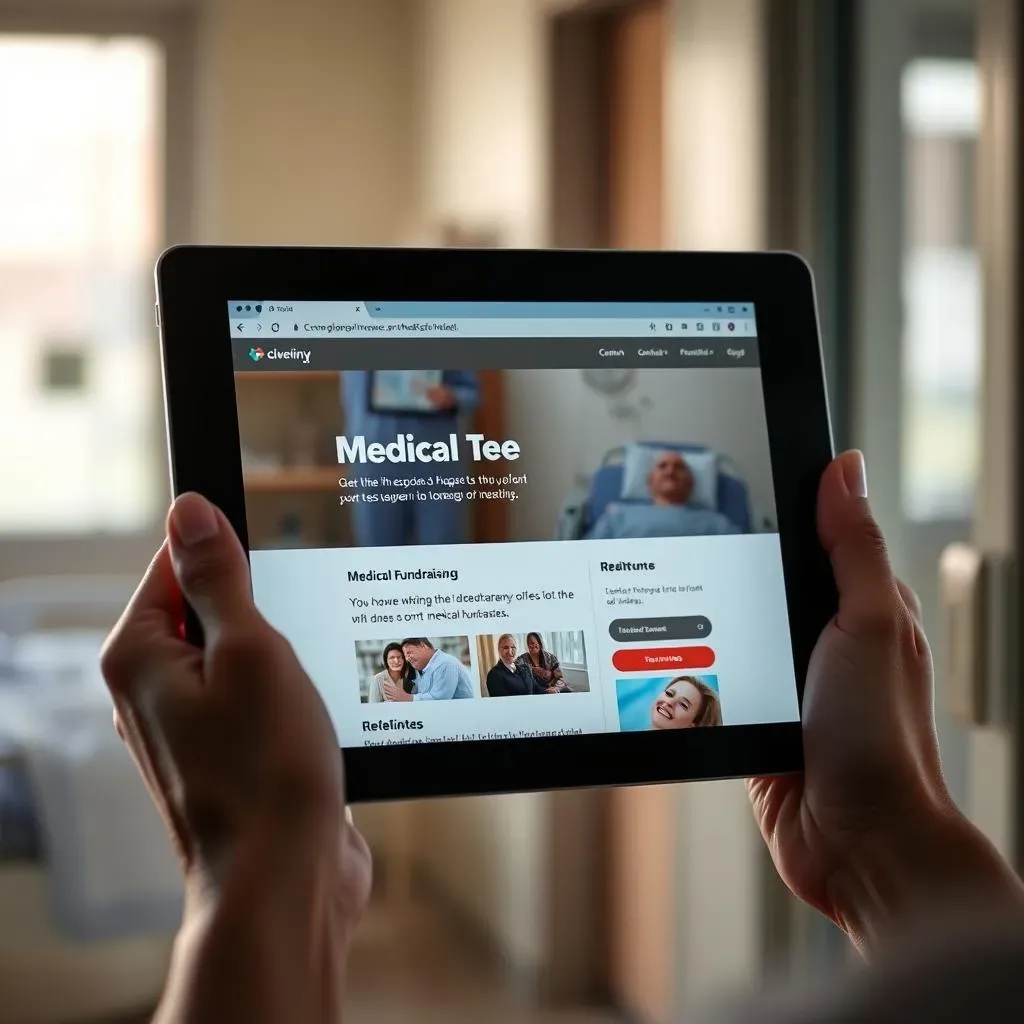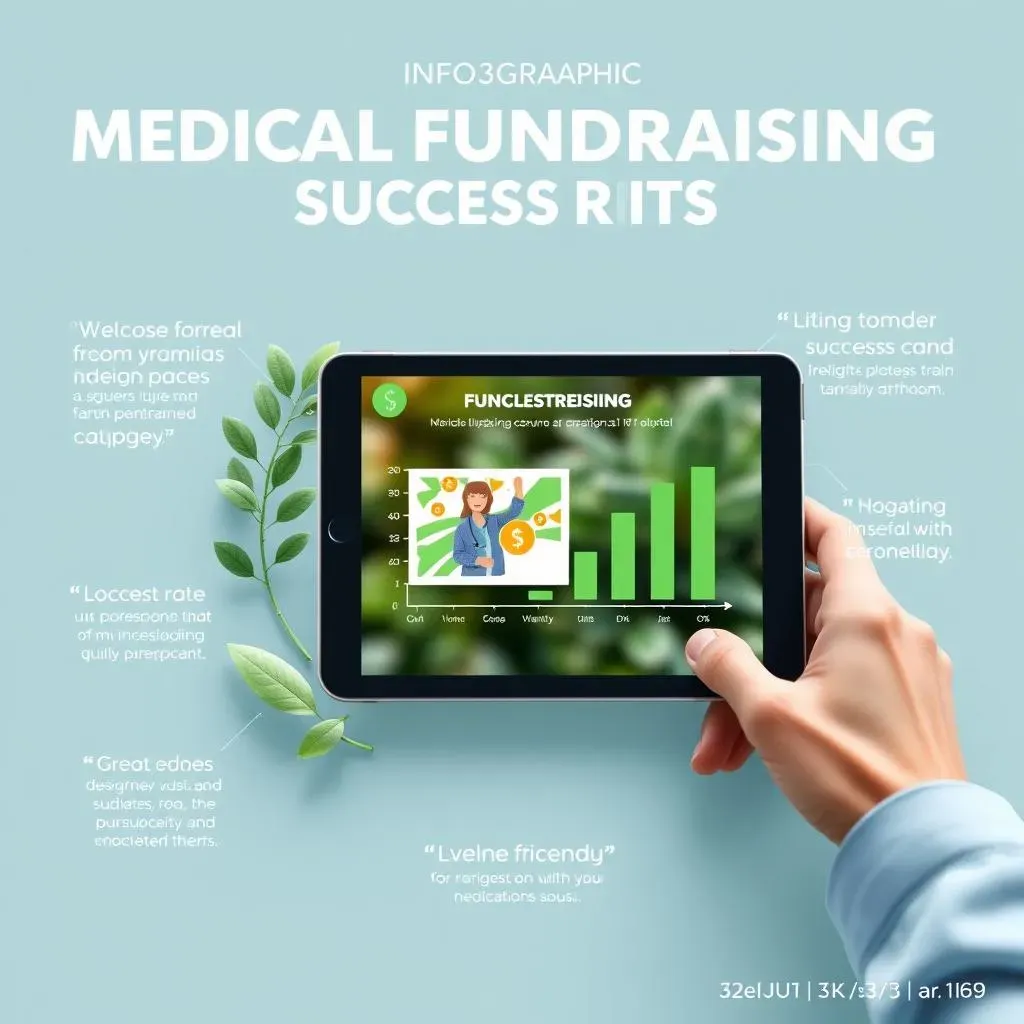Table of Contents
Facing a medical crisis often means facing a financial one too. The need for medical fundraising is sadly common, but understanding the odds of success can feel daunting. This article tackles the crucial question of medical fundraising success rates, providing a clear roadmap to navigate this complex landscape. We'll explore the realities of medical fundraising – what works, what doesn't, and why. We'll look at the various factors that significantly impact success rates, from choosing the right platform and crafting a compelling story to understanding legal regulations and tapping into different fundraising strategies. We'll also arm you with practical tips and readily available resources to maximize your campaign's potential. By the end, you'll have a much clearer understanding of medical fundraising success rates and possess the knowledge to build a more effective and successful fundraising campaign. Let's dive into the world of medical fundraising and unlock the secrets to achieving your goals. Understanding the nuances of medical fundraising success rates is the first step towards securing the necessary funds for vital medical care.
Understanding the Landscape of Medical Fundraising: Success and Challenges

Understanding the Landscape of Medical Fundraising: Success and Challenges
The High Stakes of Medical Fundraising
So, you're diving into the world of medical fundraising? Welcome to the wild west! It's a landscape filled with both incredible generosity and heartbreaking realities. The sheer cost of medical care in many countries is staggering, leaving individuals and families facing impossible choices. Medical crowdfunding platforms like GoFundMe have become lifelines for many, but success isn't guaranteed. Many campaigns fall short of their goals, leaving families with crushing debt on top of their medical struggles. That's why understanding the challenges is as important as knowing the strategies. Learn more about overcoming common hurdles in medical fundraising.
Think about it – you're asking strangers to open their wallets and contribute to a cause they might not fully understand. It requires a compelling narrative, a transparent approach, and a well-executed plan. It's not just about the money; it's about connecting with people on an emotional level and convincing them that your cause is worthy of their support. This isn't just about numbers; it's about building trust and community.
Challenge | Impact |
|---|---|
High medical costs | Many campaigns fall short of goals |
Competition for donations | Reduced visibility and reach |
Lack of awareness | Limited donor engagement |
Factors Influencing Success Rates
Several factors influence whether a medical fundraising campaign succeeds or fails. The clarity and emotional impact of the story are paramount. People connect with personal stories and relatable narratives. A well-written, heartfelt story can significantly increase the chances of success. The platform you choose also matters. Some platforms have larger audiences and better features than others. Consider using a platform with a strong reputation and user-friendly interface. A strong social media presence can also help amplify your message and reach a wider audience. Check out our guide on promoting your fundraiser effectively.
But it's not just about the platform; it's about building a community around your campaign. Actively engaging with donors, sharing updates, and showing gratitude can foster loyalty and encourage further donations. Think of it like building a team; you're not just asking for money, you're building a network of support. Regular updates and transparent communication are key to maintaining donor engagement. It's not enough to just set up a page and hope for the best; you need a plan, a strategy, and a consistent approach.
- Compelling storytelling
- Effective platform choice
- Social media engagement
- Community building
Navigating the Legal and Ethical Landscape
Medical fundraising isn't just about raising money; it's also about navigating a complex legal and ethical landscape. There are regulations concerning transparency, disclosure, and the use of funds. You need to be aware of these regulations to avoid any legal issues. It's crucial to be upfront about how the funds will be used and provide regular updates to donors. This builds trust and transparency, which are essential for a successful campaign. Learn more about legal and ethical guidelines for medical fundraising.
Furthermore, ethical considerations are just as important. It's crucial to be honest and transparent about your needs and how the donated funds will be used. Avoid making false promises or exaggerating the situation. Maintain a respectful and compassionate tone in all your communications. Remember, you're asking for help, and treating donors with respect is crucial. Building trust and maintaining ethical standards are vital for long-term success. A successful campaign is built on honesty and integrity.
Key Factors Influencing Medical Fundraising Success Rates: Strategies and Tactics

Key Factors Influencing Medical Fundraising Success Rates: Strategies and Tactics
Crafting a Compelling Narrative
Think of your fundraising story as a movie trailer – you need to grab attention in the first few seconds! It needs to be both emotionally resonant and clearly explain the medical need. Focus on the human element – use vivid language to paint a picture of the person or family facing this challenge. Highlight the positive impact donations will have. Will it cover surgery costs? Enable access to life-saving medication? Allow for vital rehabilitation? Make it personal, relatable, and impactful. Don't just state facts; evoke emotions. A powerful story can make all the difference. Check out our guide on writing a compelling story to truly resonate with potential donors.
Remember, you're not just asking for money; you're asking people to invest in a human story. People donate to causes they care about, and a compelling narrative is the key to building that connection. Make sure your story is easy to understand, concise, and emotionally engaging. Use high-quality photos or videos to further enhance the impact. Visuals can add a powerful emotional punch to your story.
- Focus on the human element
- Highlight the positive impact of donations
- Use vivid language and visuals
- Keep it concise and easy to understand
Leveraging the Power of Online Platforms
Choosing the right online platform is crucial for reaching a broad audience. GoFundMe is a popular choice, but there are others, each with its strengths and weaknesses. Some platforms specialize in medical fundraising, offering additional features or support. Research different options and choose the one that best suits your needs. Consider factors like ease of use, transaction fees, and the size of their user base. A larger audience means more potential donors, increasing your chances of success. Take a look at our platform comparison guide to make an informed decision.
Once you've selected a platform, optimize your fundraising page. Make sure it's visually appealing, easy to navigate, and contains all the necessary information. Use clear and concise language, and include high-quality images or videos. Regularly update your page with progress reports and thank you messages. This keeps donors engaged and informed, encouraging continued support. Think of your online platform as your storefront; make it attractive and inviting to potential donors!
Platform | Pros | Cons |
|---|---|---|
GoFundMe | Large user base, easy to use | Higher transaction fees |
Ketto | Global reach, various features | Steeper learning curve |
Building a Supportive Community
Don't underestimate the power of community! Actively engage with your network – share your story on social media, email friends and family, and reach out to local community groups. The more people who know about your campaign, the greater your chances of success. Consider organizing offline events, like bake sales or car washes, to generate additional funds and raise awareness. This can create a sense of community and generate additional support. Explore creative fundraising event ideas to engage your community.
Remember, it's a marathon, not a sprint. Stay consistent with your efforts, and don't be afraid to ask for help. Many people are willing to support a worthy cause, but they need to know about it! Regular updates on your progress and expressions of gratitude can go a long way in fostering a sense of community and encouraging continued support. A strong support system can make all the difference in achieving your fundraising goals. Think of it as building a team, not just asking for individual donations.
Maximizing Your Medical Fundraising Campaign: Practical Tips and Resources

Maximizing Your Medical Fundraising Campaign: Practical Tips and Resources
Setting Realistic Goals and Expectations
Let's be real, setting wildly optimistic fundraising goals is a recipe for disappointment. It's better to start with a realistic target, one that's achievable given your network and the nature of your medical need. Over-promising can damage your credibility and discourage potential donors. Research similar campaigns and see what their fundraising totals were. This will give you a better idea of what's realistically achievable for your campaign. Remember, it’s not about the amount raised; it’s about the impact made. And sometimes, even small amounts can make a huge difference. Check out these tips for successful medical crowdfunding to help you set realistic goals.
Don't forget to factor in platform fees and any other expenses associated with your campaign. Transparency is key; donors need to know exactly where their money is going. Be upfront about your expenses and how the remaining funds will be used. This builds trust and ensures donors feel confident their contributions are being used effectively. A well-defined budget shows your donors that you are responsible and organized. It's all about establishing trust.
Expense Category | Estimated Cost |
|---|---|
Platform Fees | $X |
Marketing/Advertising | $Y |
Other Expenses | $Z |
Utilizing Diverse Fundraising Strategies
Relying solely on online platforms might limit your reach. Diversify your approach! Explore offline fundraising methods like bake sales, car washes, or community events. These can generate additional funds and foster a stronger sense of community support. Consider approaching local businesses for sponsorships or donations. You might be surprised by how many people are willing to help when you ask. Remember, every little bit counts, and a diverse strategy increases your chances of success. For more creative ideas, check out our guide on unique medical fundraising ideas.
Don't underestimate the power of personal outreach. Contact friends, family, colleagues, and your wider network. Share your story and explain how they can help. A personal touch can be incredibly effective. Consider sending personalized emails or making phone calls. Personal connection can often lead to more generous donations. It’s all about building relationships and showing people why your cause is important to you and to them.
- Online Crowdfunding
- Offline Events
- Corporate Sponsorships
- Personal Outreach
